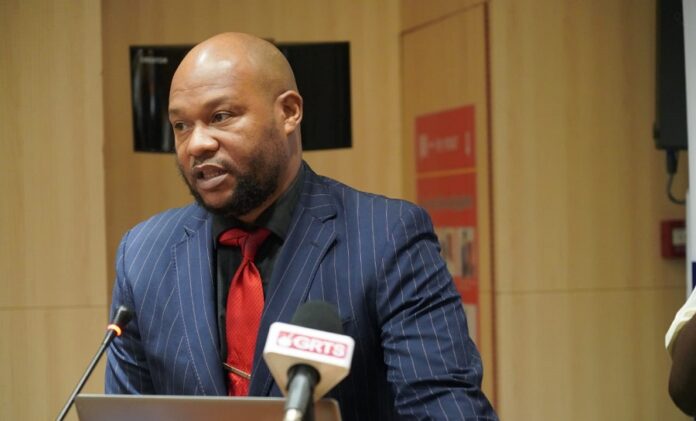By: George Chikondi Lwanda
As we celebrate International Women’s Day in 2023, it is important to acknowledge the progress that The Gambia has made in terms of technological access. In 2007, less than two out of every ten Gambians owned a mobile phone, and only two per cent of individuals had access to computers, with just one per cent having access to internet facilities.
However, as of 2021, there has been a significant increase in access to technology. The majority of Gambians now live in areas with mobile network coverage and own a mobile phone. Additionally, a significant percentage of the population now has access to the internet. According to the 2019 government Demographic and Health Survey, seven out of every ten Gambians now use the internet daily.
Despite these gains, women in The Gambia still face significant barriers to accessing technology and digital services, with men being more likely to own mobile phones and have access to the internet.
For instance, the 2021 Gambia Afrobarometer survey shows that although most Gambians have a mobile phone, there are 10% more men than women who own mobile phones. Moreover, there are fewer women (11%) that own computers than there are men (17%), which has contributed to 5% more men having access to the internet. This disparity also affects women’s access to news and information on social media, with 48% of men compared to 39% of women reporting that they use the internet every day.
A more detailed analysis of the data shows that the gender gap in technological access is influenced by several factors, including socioeconomic status and educational attainment. Women in The Gambia are more likely to be living in poverty than men, which limits their ability to purchase and use technology. Additionally, women are less likely to have received formal education than men, which can limit their digital literacy and ability to use technology effectively.
Closing the gender gap in technological access is critical for empowering women and achieving gender equality in The Gambia. To address this issue, the United Nations (UN) is working closely with the Gambian government to implement several interventions. These interventions include providing women with digital literacy training, improving access to affordable and gender-responsive technology, and promoting women’s entrepreneurship in the technology sector.
For example, UNICEF is working with the Ministry of Health and the government of Italy supporting the digitalization of birth and civil registration since many children in The Gambia do not have birth certificates. According to the 2019 government Demographic and Health Survey, 53% of Gambian children under the age of five do not have birth certificates. Without proper documentation, these children may be denied access to education and opportunities that could improve their lives.
Digitalizing birth and civil registration can provide them with the necessary documentation to be protected from harm and have a chance to go to school and have a better future.
In addition, the UN Development Programme (UNDP) is helping reduce gender inequality in access to technology in The Gambia by supporting the Department of Community Development to use computers and technology to deliver its services. Women and girls often face social and cultural barriers that limit their access to education, healthcare, and other services, which can be further compounded by a lack of access to digital technologies.
By using computers and technology to deliver services, the Department of Community Development can help overcome these barriers and ensure that women have equal access to the support and resources they need to stay safe, healthy, and supported.
Moreover, the use of technology can help reach women in remote or underserved areas who may face additional challenges in accessing services due to distance, transportation, or other factors. This can help promote greater inclusion and participation of women in social and economic development, thereby contributing to efforts to reduce gender inequality in access to technology.
Furthermore, the ILO, in partnership with the Gambia Chamber of Commerce and Industry (GCCI), launched a digital platform that provides women entrepreneurs with digital tools and resources to help them formalize their businesses and access financial services.
Similarly, the UNCDF is working with the Women Advisory Business Group to increase financial inclusion by developing mobile phone apps to help women with financial education.
These mobile apps and digital platforms provide women with convenient and accessible tools to manage their finances. They also improve their ability to access credit or save money. This promotes greater financial literacy, empowers women, and enables them to participate more fully in economic activities.
By focusing on the specific needs and challenges women face, these services help address gender-specific barriers to financial inclusion, such as limited access to formal banking services or social and cultural norms that discourage women from engaging in financial activities.
A gender gap in technological access will result in missed opportunities and create new forms of inequality, which could lead to significant economic losses in the long run.
Therefore, we must ensure that all genders have equal access to technology and the opportunities it affords. This includes increasing access to computers, the internet, and mobile phones for women, particularly in rural areas, and ensuring that women have the skills and knowledge to use these technologies to their fullest potential.
We must also challenge the gender stereotypes that persist in the technology sector by promoting diversity and inclusivity and encouraging women to pursue careers in science, technology, engineering, and mathematics.
As we celebrate International Women’s Day 2023, let us choose to challenge these inequalities and advocate for increased access to technology for all genders.
By doing so, we can ensure that women have the necessary tools and resources to participate fully in society and contribute to the country’s economic growth and social fabric.
[1] George Chikondi Lwanda is the head of the United Nations Resident Coordinator’s Office (RCO) in The Gambia.









